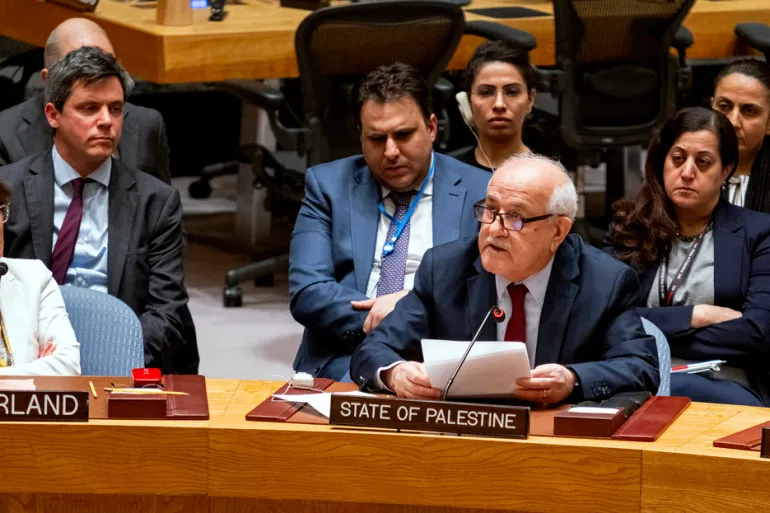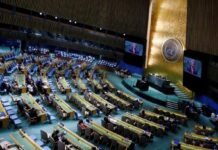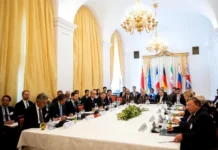
The United States’ Veto and the Debate on Palestine’s United Nations Membership
The United States’ veto against Palestine’s United Nations full membership proposal has raised significant concerns and sparked intense debates among the international community. This move by the United States has been seen by many as a setback for the Palestinian people’s aspirations for statehood and self-determination.
The United Nations Security Council’s Session and the Implications for the Israeli-Palestinian Conflict
The United Nations Security Council’s session was closely watched by diplomats and observers from around the world, as the decision on Palestine’s membership application carried significant political weight and could have far-reaching implications for the Israeli-Palestinian conflict. The fact that the draft resolution received support from 12 out of the 15 Security Council members highlighted the widespread international recognition of Palestine’s right to statehood.
The United States’ Veto and Its Criticisms
However, the United States’ decision to exercise its veto power, which it holds as one of the five permanent members of the Security Council, effectively blocked the resolution from being adopted. This move has drawn criticism from many who argue that it undermines the credibility and impartiality of the United Nations, as well as the principles of international law and justice.
Supporters and Opponents of the United States’ Veto
Supporters of the United States’ decision argue that it was a necessary step to protect the interests of its ally, Israel. They contend that granting Palestine full United Nations membership without a negotiated settlement with Israel would undermine the peace process and hinder the prospects of a two-state solution.
However, opponents of the veto argue that it perpetuates the status quo and prolongs the suffering of the Palestinian people. They believe that the United States missed an opportunity to demonstrate its commitment to a just and lasting resolution to the Israeli-Palestinian conflict.
Abstentions from Switzerland and the United Kingdom
The abstentions from Switzerland and the United Kingdom have also drawn attention, as they signify a departure from their usual positions on the Israeli-Palestinian issue. While they did not use their veto power, their decision not to support the resolution raises questions about their stance and could have implications for future diplomatic efforts to address the conflict.
Palestine’s Continued Efforts for Recognition
Despite the setback at the Security Council, Palestine’s quest for full United Nations membership is far from over. The Palestinians have indicated that they will continue their efforts to gain recognition and support from other international bodies and organizations. This includes pursuing non-member observer state status at the United Nations General Assembly, where they already enjoy overwhelming support.
The Complexities of the Israeli-Palestinian Conflict
The United States’ veto has once again highlighted the complexities and challenges involved in resolving the Israeli-Palestinian conflict. It has underscored the need for renewed international efforts to facilitate a negotiated settlement that respects the rights and aspirations of both Israelis and Palestinians.
The Algerian Proposal and the Palestinian Quest for Statehood
Despite the disappointment caused by the veto from the United States, the Algerian proposal to admit “the State of Palestine” as a United Nations member has sparked a renewed debate on the Palestinian quest for statehood. The resolution, if passed, would have been a significant step towards achieving this goal.
The Process for UN Membership Application
Once a country decides to apply for UN membership, the process can be quite complex and involves several stages. The first step is for the country to submit a formal letter to the Secretary-General expressing its intention to become a member of the United Nations. This letter should outline the country’s commitment to the principles and purposes of the UN Charter.
Upon receiving the letter, the Secretary-General will forward it to the Security Council for consideration. The Security Council, consisting of 15 member states, is responsible for maintaining international peace and security. The Council will assess the application and determine whether to recommend it to the General Assembly.
The Security Council’s decision is crucial, as it holds the power to veto any application. If any of the five permanent members of the Security Council (China, France, Russia, the United Kingdom, and the United States) decide to exercise their veto power, the application will not proceed further. However, if the Security Council approves the application, it will be referred to the General Assembly for further deliberation.
The General Assembly is the main deliberative body of the United Nations, consisting of all 193 member states. The application for membership will be placed on the agenda of the General Assembly, and member states will have the opportunity to discuss and debate the merits of the application.
In order for the application to be successful, it must receive a two-thirds majority vote in the General Assembly. This means that at least 129 member states must vote in favor of the application. If the required majority is achieved, the General Assembly will adopt a resolution admitting the country as a new member of the United Nations.
However, it is important to note that the process does not end there. Once a country becomes a member of the United Nations, it is expected to fulfill certain obligations and responsibilities. These include upholding the principles of the UN Charter, contributing to the maintenance of international peace and security, and promoting human rights and sustainable development.
Furthermore, new members are also expected to pay their assessed contributions to the UN budget, which are based on their capacity to pay. These contributions are crucial for the functioning of the organization and its various programs and initiatives.
The Algerian Delegate’s Presentation of the Draft Resolution
The Algerian delegate’s presentation of the draft resolution was met with a mixture of anticipation and skepticism from the council members. As he stood confidently at the podium, his voice resonated with passion and determination. He began by acknowledging the diverse range of nations and groups that stood behind the resolution, emphasizing the widespread support it had garnered.
With eloquence and conviction, the delegate painted a vivid picture of the dire situation faced by the Palestinian people. He highlighted the ongoing humanitarian crisis, the violation of human rights, and the persistent cycle of violence that had plagued the region for far too long. He stressed that the resolution aimed to address these pressing issues and provide a path towards a just and lasting peace.
The delegate pointed out that endorsing the resolution was not only a moral imperative but also a strategic move for the international community. He argued that by supporting the resolution, the council members would be sending a strong message to the world that they were committed to upholding international law, promoting human rights, and striving for a peaceful resolution to the Israeli-Palestinian conflict.
To further bolster his case, the delegate presented a comprehensive analysis of the proposed resolution. He outlined its key provisions, which included calls for an immediate cessation of hostilities, the establishment of a viable Palestinian state based on pre-1967 borders, and the recognition of East Jerusalem as the capital of Palestine. He emphasized that these measures were not only fair and just but also crucial for restoring stability and fostering a climate conducive to meaningful negotiations.
Throughout his presentation, the Algerian delegate skillfully addressed potential concerns and objections raised by council members. He acknowledged the complexities of the situation and the need for compromises from all parties involved. He stressed that the resolution was not intended to be one-sided but rather aimed at creating a framework for dialogue and negotiation that would lead to a mutually agreed-upon solution.
In conclusion, the Algerian delegate’s presentation of the draft resolution left a lasting impression on the council members. His impassioned plea for their endorsement resonated deeply, reminding them of their duty to uphold justice and promote peace. As the delegate stepped away from the podium, the room fell into a contemplative silence, signaling the weight of the decision that lay ahead.





